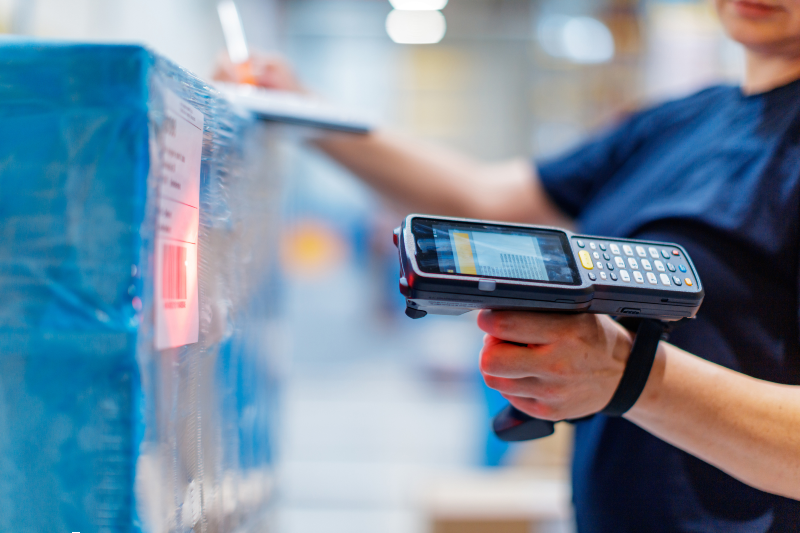Heavy-Duty Barcodes Scanners for Industrial Use
Heavy-Duty Barcodes Scanners for Industrial Use
Blog Article
Selecting the Right Barcode Scanner for Your Business Requirements
Choosing the ideal barcode scanner for your company calls for a nuanced understanding of your certain operational needs and ecological problems. Aspects such as scanner type, rate, and compatibility with existing systems play a crucial function in establishing the best selection.
Recognizing Barcode Scanner Kind
When it pertains to selecting a barcode scanner, recognizing the numerous types available is critical for meeting details organization needs. Barcode scanners can be categorized right into a number of types, each developed for different applications and settings.
Portable scanners are the most common, supplying transportability and convenience of use, making them ideal for retail and inventory management. They usually link using USB or Bluetooth, offering adaptability in operation. Fixed-mount scanners, on the other hand, are created for high-volume scanning applications, commonly discovered in setting up lines or check out counters. These scanners are placed in a stationary placement, permitting for rapid scanning of numerous items in sequence.
One more type is the mobile computer system, which combines scanning capabilities with calculating power. These gadgets are optimal for field operations or storage facility management, making it possible for information collection and real-time supply tracking. In addition, there are commercial scanners that are developed to withstand harsh atmospheres, such as severe temperatures or exposure to dirt and wetness.

Trick Attributes to Consider
What important features should services prioritize when choosing a barcode scanner? Scanning speed is crucial, as faster scanners boost functional performance, especially in high-volume settings. The scanner's ability to review different barcode layouts is likewise essential; ensure it sustains popular kinds like QR codes, UPC, and Code 128 to fit varied stock products.
Longevity is another essential attribute, specifically for organizations in rugged settings. Search for models that are built to stand up to decreases, dust, and moisture. Additionally, think about the connection alternatives available; whether you prefer USB, Bluetooth, or Wi-Fi, the ideal connectivity can enhance combination with existing systems.

Evaluating Your Organization Atmosphere
To properly select a barcode scanner, businesses must analyze their details functional setting. This assessment consists of assessing the physical format of the workspace, the nature of the items being checked, and the typical problems under which scanning happens. As an example, a find out this here retail setting may call for portable scanners that can swiftly refine purchases at the checkout, while a warehouse setup may benefit from ruggedized scanners developed to sustain harsher conditions.
In addition, think about the volume of scanning required. High-throughput environments might necessitate innovative scanning innovations, such as fixed-position scanners or mobile devices that can run effectively in fast-paced scenarios. The combination abilities with existing inventory monitoring systems additionally play an essential function; make certain the selected scanner can seamlessly get in touch with software program platforms being used.
Moreover, examine the possibility for growth and scalability. A scanner that fulfills current needs might not suffice as company expands. By thoroughly assessing these elements, businesses can pick a barcode scanner that not only meets instant demands however likewise sustains lasting operational performance and flexibility. This strategic approach eventually adds to smoother procedures and improved performance.
Budgeting for Your Scanner
Having examined the functional setting and identified the details needs for a barcode scanner, the next step involves careful budgeting to make sure a wise financial investment. Developing a spending plan begins with determining the total costs related to the scanner, including preliminary acquisition rate, operational expenditures, and potential maintenance costs.
When choosing a barcode scanner, take into consideration the variety of readily available alternatives, from portable tools to fixed-position scanners, as prices can vary considerably. It is necessary to stabilize price with functionality; choosing for an extra inexpensive design might bring about enhanced operational ineffectiveness if it does not fulfill your business requirements.
Along with the equipment, factor in costs connected to software, training, and prospective upgrades. While it may be alluring to minimize upfront expenditure, buying a high quality scanner that straightens with your functional demands can yield long-lasting cost savings with enhanced effectiveness and minimized downtime.
Finally, take into consideration the complete price of possession, which incorporates the scanner's life-span and possible resale worth. By diligently intending find your spending plan, you can make certain that your financial investment in a barcode scanner will certainly boost your functional efficiency and monetary websites performance.
Integration With Existing Systems
Incorporating a barcode scanner with your existing systems is crucial for maximizing its effectiveness and ensuring smooth procedures. barcodes scanners. A well-integrated scanner improves process efficiency, reduces errors, and speeds up data processing. When selecting a barcode scanner, think about compatibility with your existing software application and hardware facilities, including your stock administration systems, point-of-sale (POS) systems, and business resource preparation (ERP) remedies
Examine whether the scanner utilizes conventional protocols such as USB, Bluetooth, or Wi-Fi, which can facilitate very easy combination. Additionally, evaluate whether the scanner's software offers APIs or SDKs that permit personalization and integration with exclusive systems. This is especially vital for services with special operational demands.
As your organization expands, your systems should be able to accommodate extra scanners and manage boosted information quantities without substantial reconfiguration. Ultimately, investing in a barcode scanner that effortlessly incorporates with your existing systems will certainly produce long-lasting benefits, improving accuracy, efficiency, and overall productivity within your operations.

Conclusion
To conclude, selecting a suitable barcode scanner requires a detailed examination of different elements, including scanner kinds, crucial attributes, and the certain company environment. Correct budgeting for both procurement and operational costs is vital, together with making sure compatibility with existing systems. By carefully considering these components, services can enhance performance and efficiency, ultimately causing boosted functional end results. The best barcode scanner acts as a vital device in improving procedures and helping with reliable inventory management.
Report this page